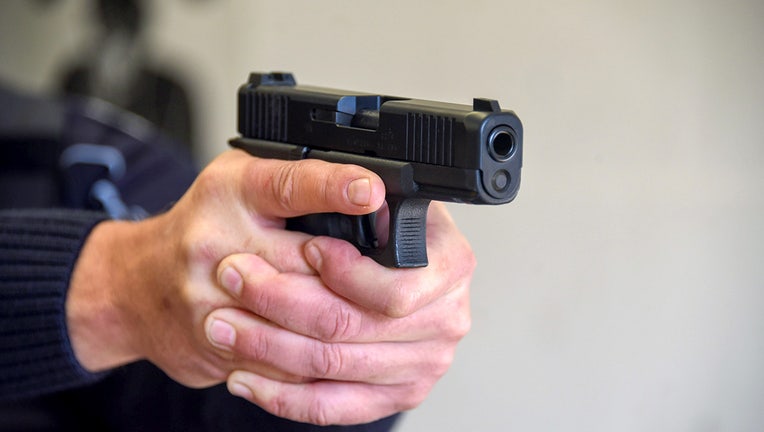How often does a 'good guy with a gun' stop an active shooter?

(Photo by Stephan Schulz/picture alliance via Getty Images)
A bystander's decision to shoot a man who opened fire at an Indiana mall was a rare occurrence of someone stepping in to try to prevent multiple casualties before police could arrive.
Police on Monday praised the quick actions of 22-year-old Elisjsha Dicken, an armed shopper who killed 20-year-old Jonathan Sapirman after Sapirman killed three people and wounded two others at a mall in the Indianapolis suburb of Greenwood.
"Many more people would have died last night if not for a responsible armed citizen," police Chief Jim Ison said Monday, repeatedly calling Dicken a "good Samaritan" and his response "heroic."
It isn't common for mass shootings to be stopped in such fashion. From 2000 to 2021, fewer than 3% of 433 active attacks in the U.S. ended with a civilian firing back, according to the Advanced Law Enforcement Rapid Response Training Center at Texas State University. The researchers define the attacks as one or more people targeting multiple people.
It was far more common for police or bystanders to subdue the attacker or for police to kill the person, according to the center's national data, which were recently cited by The New York Times.
RELATED: Police applaud bystander who killed Indiana mall shooter
In a quarter of the shootings, the attacker stopped by leaving the area, similar to what happened during the July 4 parade in Highland Park, Illinois, where seven people were killed.
"There's been this statement: ‘The only thing that stops a bad guy with a gun is a good guy with a gun.’ That's factually inaccurate because of the word ‘only,’" said Adam Lankford, a criminal justice expert at the University of Alabama who has written books and research papers about mass shootings.
Nonetheless, gun-rights advocates, including the National Rifle Association, used that phrase on social media to draw attention to what happened in Indiana.
Since July 1, Indiana has allowed anyone 18 or older to carry a handgun in public, though private property owners can prohibit firearms. The Greenwood mall has a ban on weapons, according to its conduct code.
Gun Owners of America hopes the mall reconsiders, saying gun-free zones create a false sense of security.
The Greenwood Park Mall, which is owned by Simon Property Group, didn't reply to a request for comment but released a statement commending first responders and the "heroic actions of the good Samaritan who stopped the suspect."
Lankford believes it would be a mistake to think armed civilians can be relied upon to regularly stop mass shootings.
"While it's certainly a good thing in this mall shooting that someone was able to stop it before it went any further, let's not think we can substitute that outcome in all past and future incidents," Lankford said. "If everyone's carrying a firearm, the risk that something bad happens just gets much larger."
There have been other examples of armed people defending large groups. In May, a woman fatally shot a man in Charleston, West Virginia, after he fired an AR-15-style rifle into a crowd at an outdoor party. She was praised by police, not charged.
In 2017, Devin Patrick Kelley crashed his car and killed himself after bystanders, including one who was armed, chased him after he massacred 26 people at a church in Sutherland Springs, Texas.

